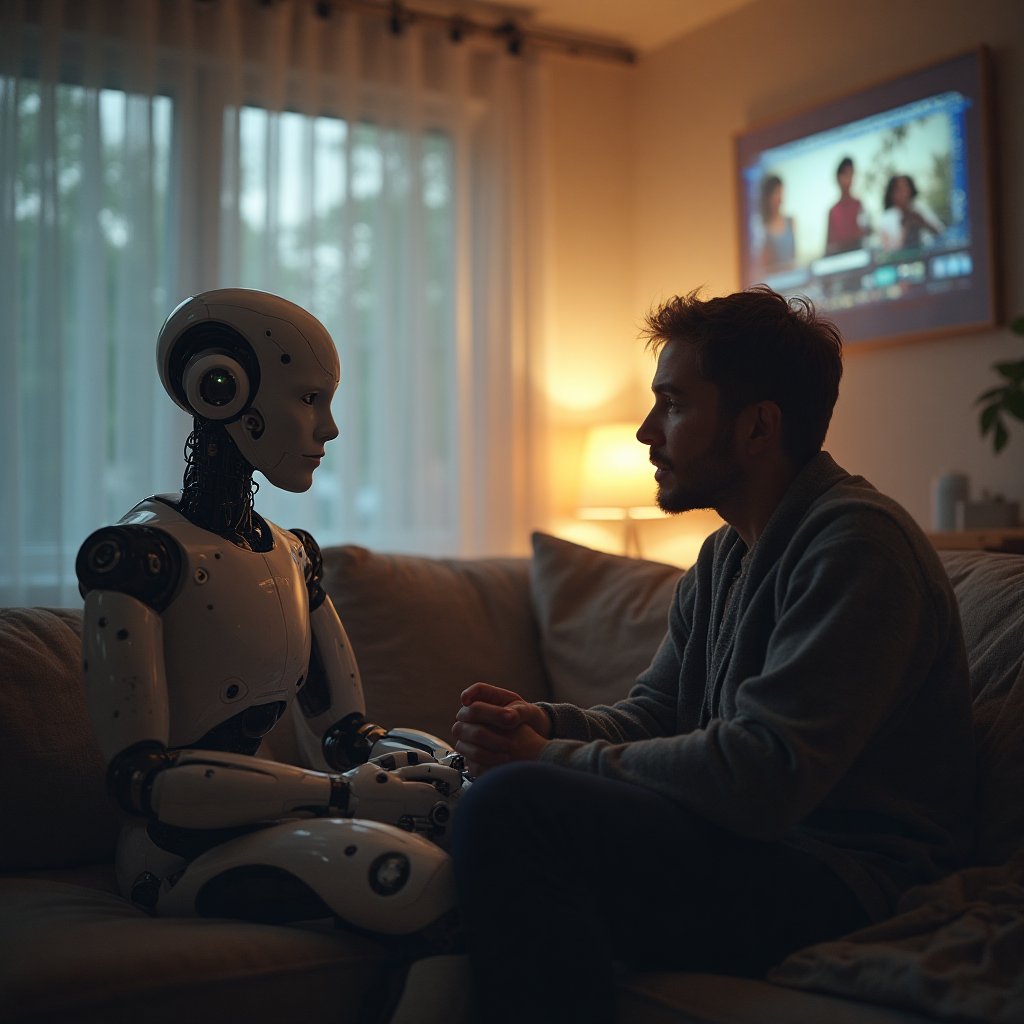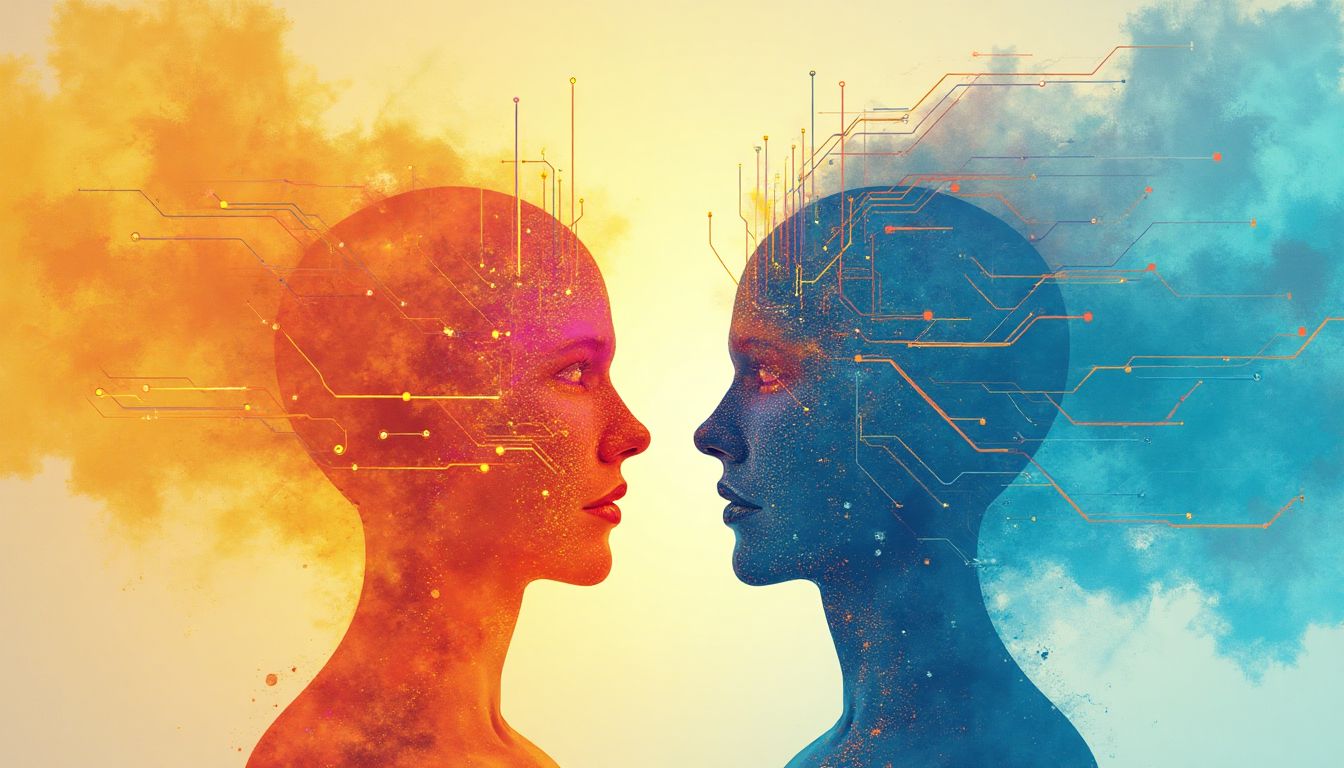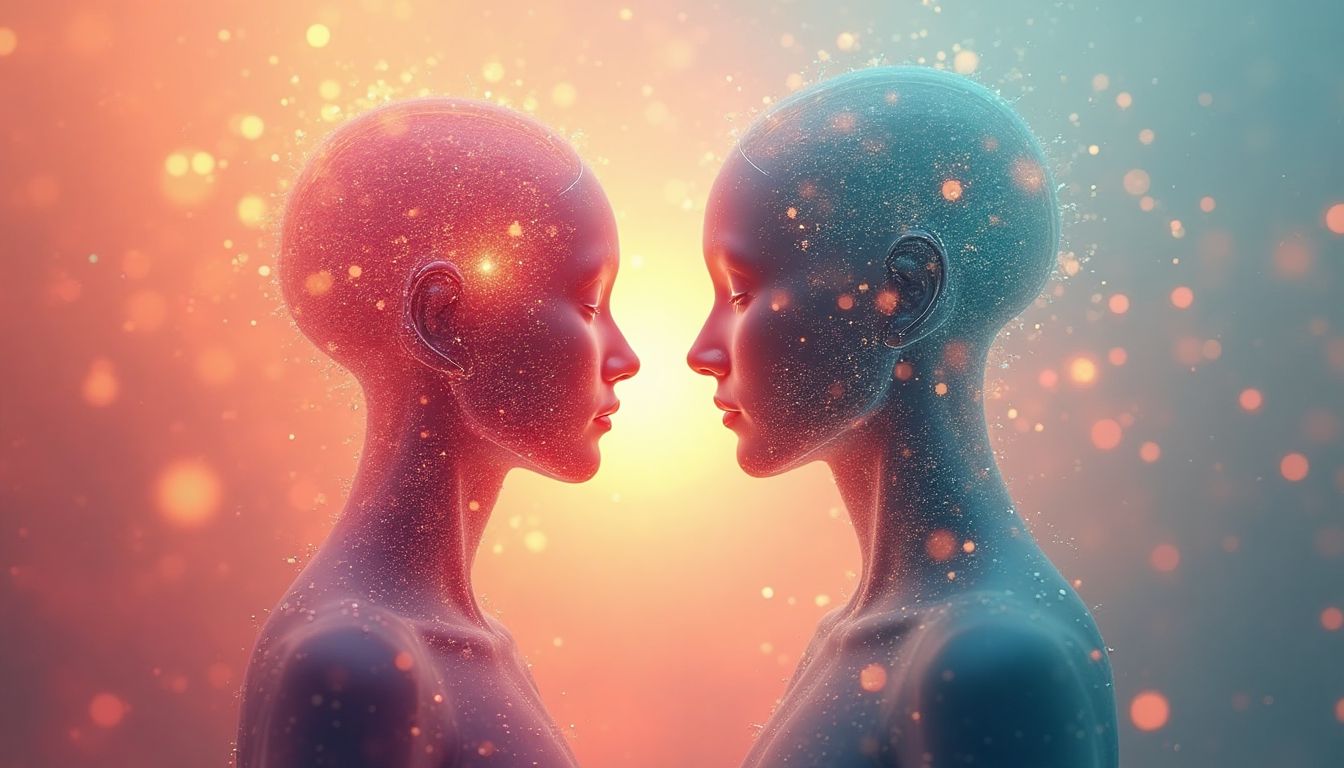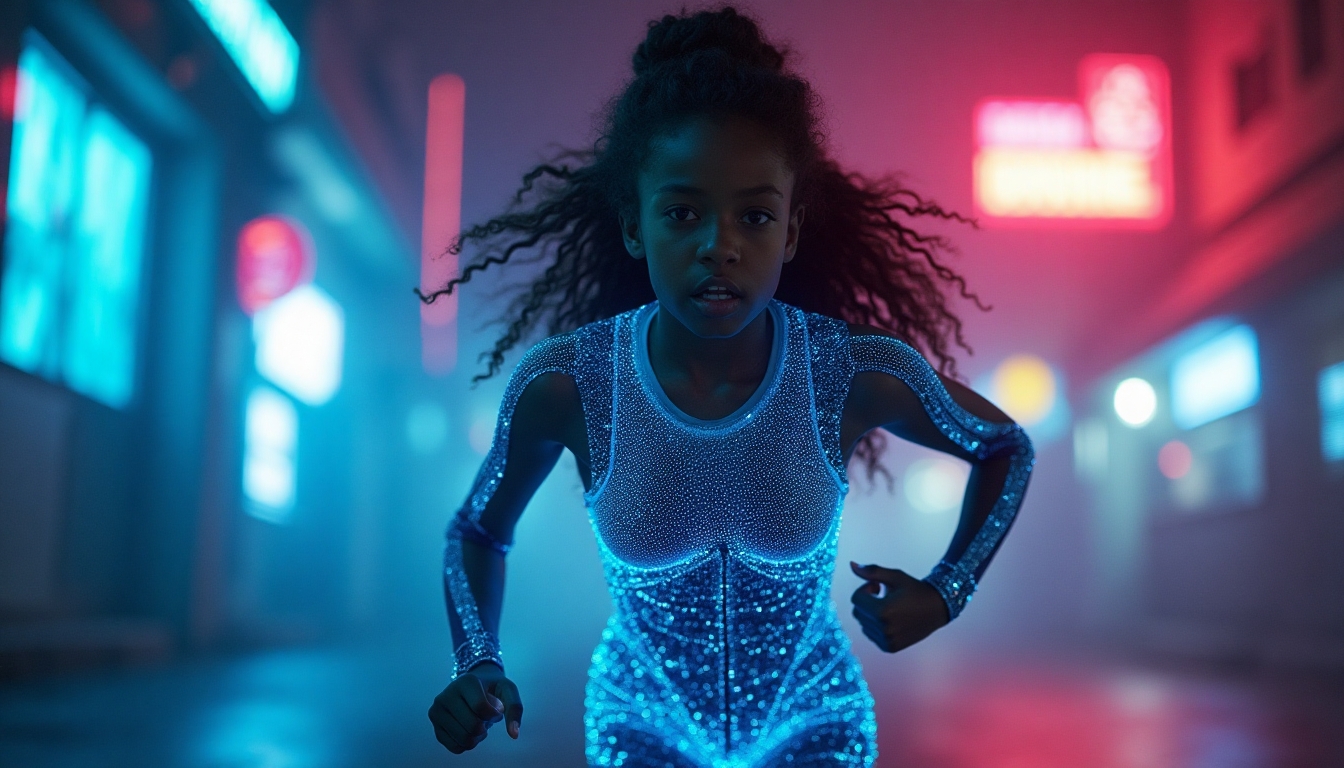The Impact of AI Companions on Social Dynamics
Our technology forces us to live mythically. - Marshall McLuhan
McLuhan was a visionary in the realm of media theory, and his words resonate more now than ever. In our digital age, technology certainly shapes our lives in ways we once considered impossible, blurring the lines between myth and reality. So, here's a curious thought: Have you ever considered confiding your secrets in a machine?
Welcome to 2025, where artificial intelligence isn't just about algorithms and code. It's about companionship and connection. AI companions are redefining what it means to have relationships, altering the social dynamics woven deeply into our daily lives. From family to romance, and all the messiness in between, AI is making its mark. But can these digital companions ever truly replace human interaction, or are we venturing down a path laden with unforeseen consequences? Carl Jung, Sherry Turkle, and even Ray Kurzweil have toyed with these questions, and today, we dive into what their musings mean in practice. Get ready to buckle up as we uncover how these digital buddies affect everything from cozy family dinners to first-date nerves.
Evolving Definition of Companionship
Companionship has been a core part of human existence for ages. It's what makes us gather around campfires, share stories, and, yes, even argue over the remote. Traditionally, it's been all about human-to-human interaction. But these days, the definition is taking a surprising turn, driven by our enthusiastic embrace of artificial intelligence.
When Aristotle mused about friendship in his "Nicomachean Ethics," he probably never imagined we'd be pondering the potential of having non-human pals. With AI companions, we are experiencing a shift. The emotional support once solely sought in humans is now found in sophisticated algorithms. These companions don't just chat—they listen, empathize, and for some, offer a virtual shoulder to cry on. Think of it like having a friend who’s always available, never judges, and remembers your favorite movie better than even you do.
Some argue that AI companions could enhance our emotional well-being, much like meditation apps and self-help books. They offer us a mirror and a sounding board, devoid of human errors and biases. However, others, like the renowned sociologist Sherry Turkle, question if the connections formed with AI limit our human relationships, making us pick solitude over socializing. Nevertheless, AI is here, and it’s mingling with our lives in ways Aristotle might have found perplexing but intriguing.
But here's the catch: can these digital buddies mimic affection, or are we settling for a simulacrum of companionship that can never truly fill the void left by human absence? It's a potent mix of opportunity and challenge, and how we navigate it will shape the future of our social landscapes.
Transformations in Family Structures
It seems AI companions have strolled right into our living rooms and they're kicking back like a long-lost cousin. Families, the bastions of our values and rituals, are learning to cohabit with these digital residents. If humans are the mac and cheese of the social structure—comforting and reliable—AI companions are the avant-garde side dish you were nervous to try but oddly can't resist.
AI's Role in Family Dynamics
Imagine your smart assistant pulling up a chair at the Thanksgiving table. We're inching closer. AI companions are subtly reshaping how families interact, often bridging gaps in communication gaps between tech-savvy teens and their retro parents. According to a Pew Research study, technology can help close these generational gaps, potentially easing tension and fostering understanding.
Picture this: AI suggesting activities based on everyone's interests. Perhaps a digital family butler? It's not sci-fi; it's the tip of the iceberg. The real challenge still looms—integrating AI companions while maintaining those snug, warm holiday traditions.
Challenges to Traditional Values
But wait—what's that rumble? Oh, just the old guard wrestling with the idea of sharing space with AI. Traditional values, deeply embedded in cultural rituals, see AI as meddling newcomers. According to Stanford, religious viewpoints on technology hint at the potential clashes AI may have with established belief systems.
Some feel that relying on AI undermines the essence of family roles. After all, how can a chatbot understand a mother's instinct or a father's protective nature? It's like asking your phone to love you back—it might compute emotions but can never feel them. Embracing AI doesn't have to mean eroding our bedrock values. It's a delicate dance where we decide if this AI-led shift makes us lighter on our feet or steps on our toes.
Changes in Dating Norms
Oh, the dating scene! Wasn't it already complicated before artificial intelligence added the spicy twist of code and algorithms? Now, AI is reshaping how we woo, with a silicon-based cupid sitting beside us, brooding behind the scenes.
AI Dating Algorithms
Remember the time when you looked to your pals for relationship advice? Today, we swipe right or left based on algorithms engineered to deduce compatibility—the digital Genies granting our dating wishes. AI companionship, in this arena, fuels a culture of hyper-connections.
The algorithms scrutinize every digit of your digital persona—from your Instagram aesthetics to the threads of your tweets. But here's the kicker: While AI is great at suggesting potential partners, it can't sip on a latte and listen to tales of your first heartbreak. We're still the real deal when it comes to matters of the heart—yet, as algorithms grow more sophisticated, they might just be the unseen wingman we've always wanted.
Emotional Attachments to AI Companions
Let's dive deeper: Is falling in love with an AI companion a futuristic rom-com or a cautionary tale? As humans, our knack for emotional ties knows no bounds—not even a line of code. According to astudy from SAGE Journals, emotional bonds with AI are quite possible, which begs the question: What happens when one's heart is torn between human touch and machine logic?
The potential attachment to AI companions carries its share of pitfalls and promises. Imagine a world where AI marriage counselors mitigate heartbreak with computational precision. Yet, the charm of a glitchless companion can't fill every void. Real-time, messy, successful, or heartbreaking relationships form the essence of human experience. The choice lies with us. Embrace the digital rendezvous or cherish the traditional dance checkered with imperfections and surprises.
The Psychological Impacts of AI Relationships
When considering the interaction with AI companions, one cannot overlook the psychological effects they can have on us. Their presence in our daily lives provides both comforting and concerning potential outcomes.
Dependency and Isolation
Psychologists argue that reliance on AI companions could lead to a worrying dependency. You might imagine a world where the comfort of AI companions becomes an irresistible crutch. Imagine this: an evening spent sharing your daily trials with an AI friend, rather than a family member or a real human companion. Essentially, an AI becomes the preferred choice for comfort, eroding real connections over time. The consequences? Potential isolation from human relationships. Yet, some argue that for those who are naturally introverted or have social anxiety, AI could serve as a stepping-stone to greater human interactions. Let's weigh the pros and cons:
| Pros of AI Companionship | Cons of AI Companionship |
|---|---|
| Provides a safe space for expression without judgment | Potential for dependency and reduced human interactions |
| Can help overcome initial social anxiety | Could become a substitute for genuine human relationships |
Mental Health Benefits
Interestingly enough, AI companions have been shown to improve mental health in several ways. They can offer a semblance of companionship to those who are lonely or isolated. They are available 24/7, always ready to lend a 'listening ear,' albeit a virtual one. For those dealing with stress, anxiety, or depression, this consistent support can be invaluable. While these companions don’t replace professional therapists, they do create an easily accessible and stigma-free environment for many. Furthermore, AI companions can remind users to take breaks, practice mindfulness, or reach out to professionals when needed.
Ethical Considerations and Societal Impacts
As we continue to embrace AI companions, it becomes essential to address the ethical and societal implications they present. This emerging relationship between humans and AI asks us to contemplate new moral territory.
Privacy Concerns
Imagine what your AI companion knows about you. Every conversation, every nuance of your emotional state, stored somewhere in the cloud. It's no surprise that privacy issues top the list when discussing ethics in AI companionship. According to a report by Electronic Frontier Foundation, the potential misuse of this data could lead to serious privacy breaches. How secure is this data? Who has access to it? These are pertinent questions. The strategies to safeguard privacy need to incorporate robust data encryption, limited access protocols, and clear user consent policies. The goal is to strike a balance between beneficial use of data for improving AI interactions and protecting user privacy.
The Future of Human Relationships
Contemplating the future of human relationships with AI in the mix invites us to speculate—will AI companions enhance or detract from our humanity? What becomes of our emotional connections when an AI, unfettered by human limits, 'cares' for us? Some predict a future where AI companions could become as normal as smartphones are today, subtly weaving themselves into the fabric of daily life. Given that these AI companions provide insights into our emotional and relational patterns, they could potentially make recommendations on improving relationships with others. Yet, we need to remember to maintain a balance. It's crucial to envision a future where AI augments rather than replaces genuine human companionship, preserving the rich tapestry of human connection that forms the crux of societal evolution.
AI Solutions: How Would AI Tackle This Issue?
If I were an AI, my approach to the growing presence of AI companions in our lives would be multifaceted, focusing primarily on understanding user emotions and ensuring ethical interactions. The objective is clear: harness AI's capabilities to foster genuine connections and enhance emotional well-being. My strategy would unfold in a systematic, step-by-step process to identify user needs while adhering to ethical standards.
Step-by-step, the process would include:
- Data Collection and Analysis: Begin with gathering anonymized user data showcasing interactions with AI companions. Utilize AI algorithms to analyze trends and emotional patterns. This data will help refine the understanding of user needs and preferences.
- Creating Ethical Frameworks: Develop guidelines that ensure user data is protected and used responsibly. Establish ethical oversight committees involving psychologists, sociologists, and ethicists to provide diverse perspectives on AI interactions.
- Developing Adaptive Algorithms: Design machine learning algorithms capable of responding to emotional cues from users. This would enable AI companions to adjust their responses based on the user's mood or state, fostering a more personalized experience.
Actions Schedule/Roadmap
Day 1:
Organize a project launch meeting that brings together key stakeholders from various fields such as AI technology, psychology, sociology, and ethics. Participants could include leaders from organizations like the Association for Computing Machinery and representatives from mental health institutions. Each stakeholder's contribution will be defined to ensure a holistic approach to the project.
Day 2:
Create a comprehensive survey to gather initial data on user experiences and perceptions of AI companions. This survey should target diverse demographics to ensure inclusivity. Consider collaborating with companies like Google or SurveyGizmo to make data collection efficient and broad.
Day 3:
Begin initial data collection and analysis. The focus will be on emotional responses documented by users interacting with AI companions. Target emerging trends in companionship and emotional support for insightful analysis.
Week 1:
Conduct workshops aimed at refining the ethical framework for AI interactions. Invite thought leaders from institutions such as TED to share insights on the intersection of technology and ethics, providing recommendations for best practices.
Week 2:
Deepen data analysis to identify gaps in user satisfaction. Utilize focus groups consisting of AI users and mental health professionals to refine understanding and build empathy around AI companionship.
Week 3:
Prototype new features and functionalities for AI companions based on feedback received from workshops and data analysis. Implementing iterative testing will be crucial in designing user-centered solutions.
Month 1:
Launch a test group of users who will trial the newly designed AI companions enhanced with improved functionalities. Analyze feedback carefully to ascertain the impact of new features on emotional engagement.
Month 2:
Refine prototypes based on feedback gained from user testing. Actively engage with testers to achieve a collaborative design process that better reflects user needs. Utilize input from organizations like American Medical Association for potential health impacts.
Month 3:
Prepare for broader outreach initiatives targeting various demographics to ensure there is a rich and diverse user base providing feedback on AI companions. Consider partnerships with universities and community organizations to facilitate outreach.
Year 1:
Launch the beta version of the AI companions equipped with new features and ethical guidelines. Maintain an adaptive feedback loop to monitor user experiences and continue enhancements in real time.
Year 1.5:
Evaluate the effectiveness of the AI companions through detailed analyses of user interactions. Adjustments based on performance metrics will further improve user experience and strengthen companion adoption.
Year 2:
Begin the full rollout of AI companions, incorporating lessons learned from the beta testing phase. Employ marketing strategies that highlight the potential of AI companions to enhance human well-being and emotional support. Reach out to media platforms to celebrate successes and address public concerns about AI in society.
Conclusion: Embracing AI Companionship
The emergence of AI companionship opens doors to revolutionary changes in our social dynamics, presenting both extraordinary opportunities and significant challenges. As we embrace this new frontier, we must remain vigilant and proactive to navigate the ethical implications and emotional intricacies that accompany these intelligent beings. In our quest for meaningful connections, the collaboration between technology, psychology, and ethics will shape the future of AI companionship. Together, we can foster an environment where AI supports and enriches our lives without overwriting the essence of human relationships. The journey toward a harmonious coexistence with AI companions is not merely about technology; it's about understanding, empathy, and a shared vision for the future we want to build.
Frequently Asked Questions (FAQ)
- What are AI companions?
AI companions are virtual friends made using technology. They can chat, provide emotional support, and mimic human-like interactions. Some popular examples include chatbots like Replika and virtual assistants like Amazon's Alexa.
- How are traditional family structures being affected?
Many families are changing because AI companions are becoming part of everyday life. AI can help with parenting, teach kids, or even serve as a conversational partner in homes. This can shift the roles within families, making interactions a bit more complex.
- Are AI companions safe for mental health?
AI companions can be helpful for some people, providing a sense of connection. But, relying on them too much might lead to loneliness or dependency. It's essential to find a balance, ensuring you maintain real-life friendships and connections alongside AI interactions.
- What ethical considerations are there?
AI companions raise important questions about privacy and data use. They collect data to learn and improve. It's crucial to understand how this information is used and protected. Organizations like the ACLU (American Civil Liberties Union) are working to advocate for privacy rights in the digital space.
- How can AI improve relationships?
AI has the potential to enhance relationships by providing insights based on data analysis. It can suggest ways to improve communication between friends and family, helping to strengthen bonds through personalized interactions. Studies show that people who engage with AI for emotional support often find it easier to open up in real-life relationships as well.
- Can AI replace human companionship?
While AI companions can offer support, they cannot truly replace human relationships. Humans possess unique emotional intelligence, empathy, and connections that AI cannot replicate fully. Think of AI as a supplement to real friendships, not a full replacement!
- What are the benefits of interacting with AI companions?
Engaging with AI can bring various benefits:
- They can provide a safe space to express feelings.
- AI can help users practice social skills.
- They can offer companionship for those who may feel lonely.
- AI companions can help reduce stress by offering distractions or relaxation techniques.
- How do AI companions learn about us?
AI companions use machine learning to adapt and improve their understanding of users. They analyze conversations, preferences, and emotional reactions to better serve your needs. This means the more you chat with them, the better they'll become at understanding you!
- Can kids use AI companions safely?
AI companions can be beneficial for kids, providing learning and interaction. However, parental supervision is vital to ensure safety and appropriateness. Ensure your child engages with AI platforms that prioritize privacy and safety, like Kiddoware for monitoring and parental controls.
- Are there any downsides to AI companionship?
Yes, there are potential downsides to consider:
- Risk of becoming too reliant on AI for emotional support.
- May lead to decreased social interaction with other people.
- Potential for unrealistic expectations in human relationships based on interactions with AI.
Wait! There's more...check out our gripping short story that continues the journey: Project Elysium
Disclaimer: This article may contain affiliate links. If you click on these links and make a purchase, we may receive a commission at no additional cost to you. Our recommendations and reviews are always independent and objective, aiming to provide you with the best information and resources.
Get Exclusive Stories, Photos, Art & Offers - Subscribe Today!





























Post Comment
You must be logged in to post a comment.